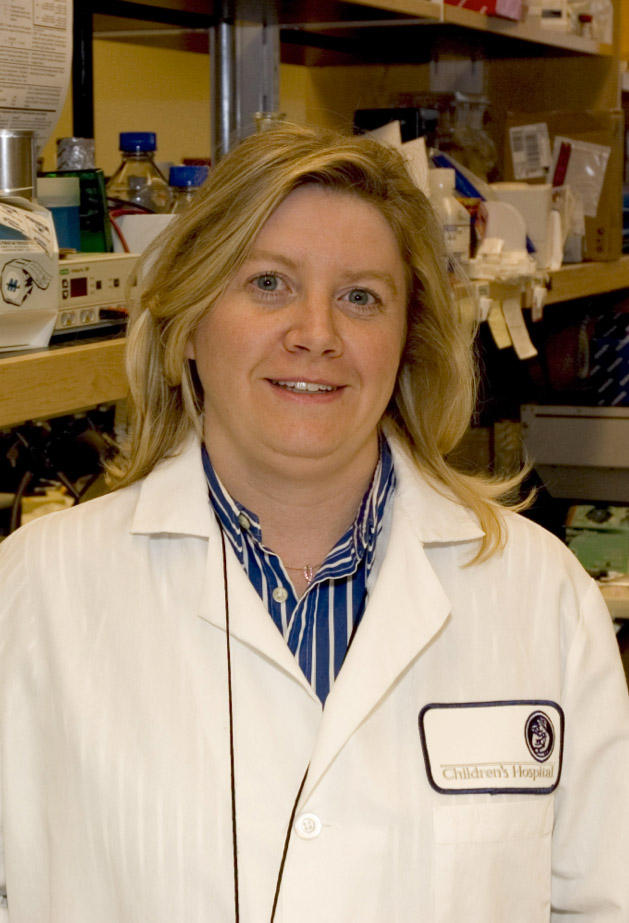CCBIO Seminar – Diane Bielenberg
Welcome to a CCBIO Seminar with speaker Diane Bielenberg, Assistant Professor, Vascular Biology Program, Boston Children’s Hospital, Department of Surgery, Harvard Medical School. Title: "Targeting Neuropilin Pathways to Inhibit Metastasis".
Main content
Speaker: Prof. Diane Bielenberg, Assistant Professor, Department of Surgery, Harvard Medical School; Research Associate, Vascular Biology Program, Boston Children’s Hospital
Title: "Targeting Neuropilin Pathways to Inhibit Metastasis"
Chairperson: Elisabeth Wik
The seminar is open to all, including the pizza-get-together outside of the auditorium following the seminar.
Abstract:
As primary tumors grow in vivo, tumor cells must induce new blood vessels to sprout into the tumor environment, a process called angiogenesis, to provide adequate nutrients and oxygen. Additionally, tumor blood vessels serve as an escape route for tumor cells. Therefore, therapies aimed at inhibiting angiogenesis may not only block tumor growth but also metastasis, the spread of cancer cells to distant sites. Tumor-associated neo-vessels are typically leaky and lead to increased fluid volume and pressure in the interstitial space. Peri-tumoral lymphatic vessels can enlarge to compensate and drain this excess fluid. Tumor-associated lymphatic capillaries also serve as a primary escape route for tumor cells as the lymphatic system returns fluid and cells back to the blood vascular system. This lecture will describe current findings related to the Neuropilin-2 signaling cascades in blood and lymphatic vessels in physiological and pathological (cancer) models. Neuropilin-2 is required for neovascularization in many cancers and treatment with the Neuropilin-2 inhibitory ligand, SEMA3F, can inhibit angiogenesis and lymphangiogenesis in preclinical cancer trials, thereby reducing overall metastatic burden.
Biography:
Dr. Diane Bielenberg, Ph.D., is an Assistant Professor at Harvard Medical School and Boston Children’s Hospital. She earned a B.S. in Chemistry and a B.A. in Biology from the University of Northern Iowa and performed her doctoral studies in Cancer Biology at the University of Texas Health Science Center and M.D. Anderson Cancer Center funded by an NIH/NCI Cancer Immunobiology Training Grant. Dr. Bielenberg performed her postdoctoral studies as an American Cancer Society Fellow at Harvard Medical School and Boston Children's Hospital.
Dr. Bielenberg’s laboratory focuses on growth factor receptors in vascular biology processes including angiogenesis and lymphangiogenesis. In particular, her laboratory investigates the mechanisms related to Neuropilins and Class 3 Semaphorins in cancer biology and tumor (lymph)angiogenesis. She has co-authored 87 publications to date and projects in the Bielenberg laboratory have been funded by: NIH/NCI melanoma SPORE, NIH/NCI Howard Temin Award, NIH/NIDDK P50 George O’Brien Urology Award, NIH R21 (NEI; NCI), NIH R01 (NIDDK; NHLBI), Skin Cancer Foundation, Harvard Digestive Diseases Center, and Pfizer. In addition to her research, Dr. Bielenberg is involved with teaching and mentoring at Harvard Medical School. Dr. Bielenberg has twice received the HMS Excellence in Tutoring Award and received the HMS Young Mentor Award. Dr. Bielenberg received the Cotran Established Investigator Award from the American Society for Investigative Pathology.
